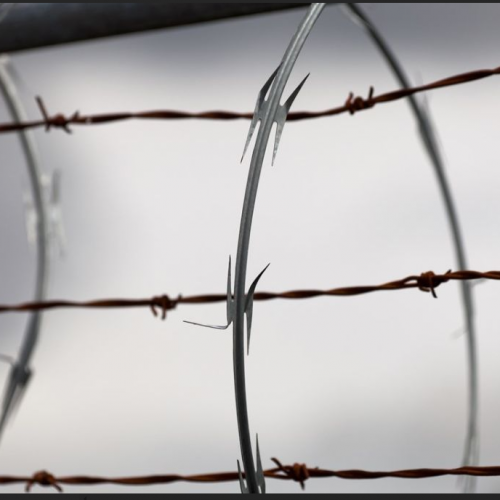
In Madagascar, climate change is a growing threat to the country’s prison population. Recent weather events have worsened the already poor conditions of the country’s prisons, and the need for increased protection of prisoners’ rights is even more pressing.
Prisoners in Madagascar live under harsh conditions, with low access to hygiene facilities, medical care, nutritious food, and clean water. These conditions are good breeding grounds for disease, and tuberculosis is the primary cause of death for prisoners in the country. Additionally, the ICRC reports, close to half of all prisoners in Madagascar suffer from severe malnutrition. These health challenges are exacerbated by the issue of severe overcrowding. According to an Amnesty report from 2018, the overcrowding of prisons in Madagascar cultivates life threatening conditions for the incarcerated. It is the result of the excessive use of pre-trial detention, as prisoners are often detained for petty theft and other minor offences, and that prisoners spend a long time awaiting trial. It disproportionally affects the most vulnerable in the country, as they cannot afford legal representation. In most of the prisons, Amnesty reports, there are more prisoners awaiting trial than have been convicted. In 2017, 129 people died in prison in Madagascar, and of these, 52 were pre-trial detainees.
The prison conditions have taken a turn for the worse, as recent weather events in the country have made life even more dangerous for the incarcerated. AfricaNews and Archyde reported in March that the two cyclones that hit Madagascar in February caused extensive damage to five prison facilities, two of which, Mananjary and Ikongo, were completely destroyed. One prison roof was ripped off by the wind, leaving the prisoners completely exposed to the harsh weather conditions and with nowhere to seek shelter. The cyclones also caused damage to roads leading up to the prisons, making food and other relief aides impossible to deliver. The prisons have been reconstructed to more or less their former state, but the conditions remain poor and the structures are ill prepared for future cyclones. Discussions are currently underway to find long term solutions to the challenges that extreme weather poses to the country’s prison population.
The situation in Madagascar demonstrates the increasing intersection of environmental justice and the rights of prisoners, particularly in countries that are the most affected by climate change. AfricaNews reported six destructive weather events in Madagascar – affecting more than half a million people – in the period between January and April 2022. At the same time, the south of the island is experiencing a severe drought and food resources are extremely limited. The UN reported last year that Madagascar is facing a severe humanitarian crisis, and that climate change is making it increasingly difficult, particularly for the most vulnerable, to live there. In an environmental crisis, prisoners are easily forgotten. The need for increased protection of prisoners’ rights is therefore pressing. Prisoners are particularly vulnerable to extreme weather because they cannot escape it. When a cyclone rips off the roof over their heads, they have nowhere to seek shelter. Yet, prisoners are likely to receive the least protection from extreme weather. As prisoners remain largely voiceless, it is crucial to advocate for their rights in the context of the environmental crisis.
Written by: Tuva Fried Nielsen, SALC Intern.



